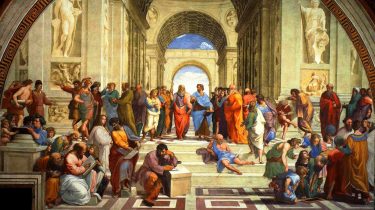“Public” Scholarship?
How do we make our scholarship accessible and meaningful to non-academic audiences? This is a particularly urgent question for the Humanities, which are famously in crisis, but it is relevant to all of the disciplines taught in the College of Arts and Sciences.
This question, in turn, raises questions about how we evaluate and reward academic work: Do we value work targeted to a general audience less than, as much as, or more than work published in primarily academic journals? Do we encourage faculty to pursue projects that directly engage with urgent issues of public policy? Do we encourage students to pursue these kinds of projects?
Here are three articles that explore these questions:
- Making Research Matter: A Public Challenge to Scholars: https://www.insidehighered.com/views/2017/10/12/scholars-need-use-their-research-more-effectively-weigh-public-issues-day-essay .
- One University Takes on the Opioid Crisis: https://www.chronicle.com/article/One-University-Takes-On-the/241325 . (This is an area where we have some expertise in the college.)
- Communications 101 for Professors: https://www.chronicle.com/article/Communication-101-for/241435 .

